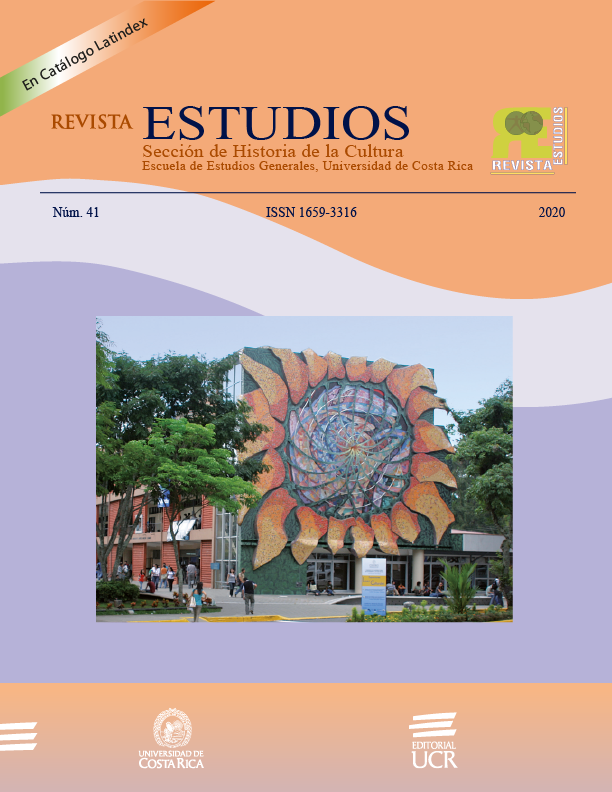Resumen
Resumen: La educación en el contexto del SARS-CoV-2 ha significado una crisis en sistemas educativos confrontados con la virtualización de emergencia, la educación a distancia o la suspensión temporal del ciclo lectivo. En algunos países se enfrenta el regreso a la presencialidad condicionada a la aplicación de protocolos preventivos. Esta emergencia global presenta inquietudes sobre cómo responder desde una pedagogía propositiva más que reactiva para dar respuesta a la situación actual y anticipar el escenario post pandemia. Este ensayo presenta las prácticas restaurativas como un abordaje que trasciende medidas disciplinarias positivas aisladas y constituye un ingrediente metodológico para una pedagogía crítica y para la paz. Una pedagogía restaurativa se consolida en la integración propositiva entre la comunidad y los aportes de la experiencia especializada. Se ofrecen implicaciones docentes y comunitarias para la respuesta presente y futura desde una ciudadanía afectiva.
Citas
Referencias
Abrams, G.B. (2020). Salud Comunitaria y Prácticas Restaurativas. [Website]. Recuperado de: https://la.iirp.edu/2020/05/01/salud-comunitaria-y-practicas-restaurativas/
Abrams, G. B., Hebling, M. J. & Smull, E. (2018, Octubre). Proactive restorative practices: Creating the conditions for individuals and communities to flourish. Ponencia presentada en Strengthening the Spirit of Community, IIRP World Conference, Detroit, MI.
Ahmed, E., Harris, N., Braithwaite, J. & Braithwaite, V. (2001). Shame Management Through Reintegration. Cambridge Criminology Series.
Augustine, C., Engberg, J., Grimm, G. E., Lee, E., Lin, E., Christianson, K., Joseph, A. (2018). Can Restorative Practices Improve School Climate and Curb Suspensions? An Evaluation of the Impact of Restorative Practices in a Mid-Sized Urban School District. Santa Monica, CA: RAND Corporation.
Blood, P. & Thorsborne, M. (2006). Overcoming resistance to whole-school uptake of restorative practices. Congreso 8th International Conference on Conferencing, Circles and Other Restorative Practices, Estados Unidos.
CASEL (2019). What is SEL? [Website]. Recuperado de: https://casel.org/what-issel/
Chapman, T. (2020). A Vision for Restorative Justice: From Ego to Ecosystem. [Video de YouTube]: https://youtu.be/T5P6THqN8I4
Craig, G. & Baucum, J. (2009). Desarrollo Psicológico. 9na. Edición. Pearson.
De Mezerville López, C. (2019). Protagonismo Adolescente. El rol del estudiantado en la implementación de Prácticas Restaurativas en el Liceo San Rafael de Alajuela. Revista de Educación y Desarrollo, 50, 9-17.
De Mézerville López, C., Meza Rodríguez, A., Ochoa, T. A., & Ovares Fernández, Y. (2019). APLICACIONES EDUCATIVAS EN SECUNDARIA PARA LA PREVENCIÓN DE LA CRIMINALIZACIÓN ESTUDIANTIL: UN ENFOQUE DESDE LA JUSTICIA RESTAURATIVA Y LOS DERECHOS HUMANOS. Revista Latinoamericana De Derechos Humanos, 30(1), 123-148. https://doi.org/10.15359/rldh.30-1.5
De Mezerville López, C. (2020). El desafío del diálogo intercomunitario. [Website]. Recuperado de: https://la.iirp.edu/2020/07/30/la-esperanza-esta-en-el-dialogo-intercomunitario/
Feldman, R.(2018). Psicología con Aplicaciones de América Latina. 12Va Edición. McGrawHill.
Freire, P. (1985): Pedagogía del oprimido. Siglo XXI Editores
Gagnon, J.C. (2020). The solitary confinement of incarcerated American youth during COVID-19. Psychiatry Res. 292, 113219. doi: 10.1016/j.psychres.2020.113219
George, G. (2014) Affect and emotion in a Restorative School. In Kelly, V. and Thorsborne, M. (Eds.), The Psychology of Emotion in Restorative Practice (pp. 200 – 233). Jessica Kingsley Publishers.
Gomez, J. A., Rucinski, C. L., & Higgins-D’Alessandro, A. (2020). Promising pathways from school restorative practices to educational equity. Journal of Moral Education, doi: 10.1080/03057240.2020.1793742
Haga, K. (2020). Healing Resistance. Parallax Press.
hooks, bell (1994). Teaching to Transgress. Routledge.
Henderson, V. Milstein, M. (2003). Resiliencia en la Escuela. Buenos Aires: Paidós.
Kim, W.C., & Mauborgne, R. (2003). Fair Process. Managing in the Knowledge Economy. Harvard Business Review. The Best of HBR, 127-136.
Knight, D. and Wadhwa, A. (2014). Expanding Opportunity through Critical Restorative Justice Portraits of Resilience at the Individual and School Level. Studies in Education, 11(1), 11-33.
Leandro Herrero (2016, 19 de febrero). The missing word in the famous Margaret Mead quote. https://leandroherrero.com/the-missing-word-in-the-famous-margaret-mead-quote/
Lemaitre, Julieta. (2020). Transitional justice and the challenges of a feminist peace. I•CON. 18(2), 455-460. doi:10.1093/icon/moaa050
Levins Morales, R. (2020). Give me a fish. [Website]. Recuperado de: https://www.rlmartstudio.com/product/give-me-a-fish/
Liang, C.T., Rocchino,G.H., Gutekunst, M.H.C., Cléopatre Paulvin, C., Li, K.M. & Elam-Snowden, T. (2019). Perspectives of Respect, Teacher–Student Relationships, and School Climate Among Boys of Color: A Multifocus Group Study. Psychology of Men & Masculinities, 21(3), 345–356. http://dx.doi.org/10.1037/men0000239
Lustick, Hillary (2017). “Restorative Justice” or Restoring Order? Restorative School Discipline Practices in Urban Public Schools. Urban Education, 00(0), 1-28. doi: 10.1177/0042085917741725
Molnar-Main, S. (2014). Integrando Prevención del Acoso Escolar con Prácticas Restaurativas en Instituciones Educativas. Consideraciones para Practicantes y Gestores de Políticas. Clemson University.
Oberst, U., Chamarro, A. & Renau, V. (2016). Gender Stereotypes 2.0: Self-representations of Adolescents on Facebook. Revista Científica de Educomunicación, 24(48), 81-90.
Orgilés, Mireia; Morales, Alexandra; Delveccio, Eliza; Mazzeschi, Claudia; Espada, José P. (2020). Immediate psychological effects of the COVID-19 quarantine in youth from Italy and Spain. Ministry of Science and Innovation of Spain and the European Regional Development Fund (PSI2017-85493-P).
Pollock, M. (2017). Schooltalk: Rethinking What We Say Aboutand ToStudents Every Day. The New Press.
Sagot, M. (2020). Violence Against Women: Contributions from Latin America. The Oxford Hadbook of the Sociology of Latin America. doi: 10.1093/oxfordhb/9780190926557.013.32
Smith, N. & Weatherburn, D. (2012). Youth justice conferences versus children’s court: A comparison of re-offending. Crime and Justice Bulletin. 160.
Vandeering, D. (2013). A window on relationships: reflecting critically on a current restorative justice theory. Restorative Justice: An International Journal. 1(3), 311-331
Wachtel, T. (2013). Defining Restorative. [Archivo en PDF]: https://www.iirp.edu/pdf/Defining-Restorative.pdf


